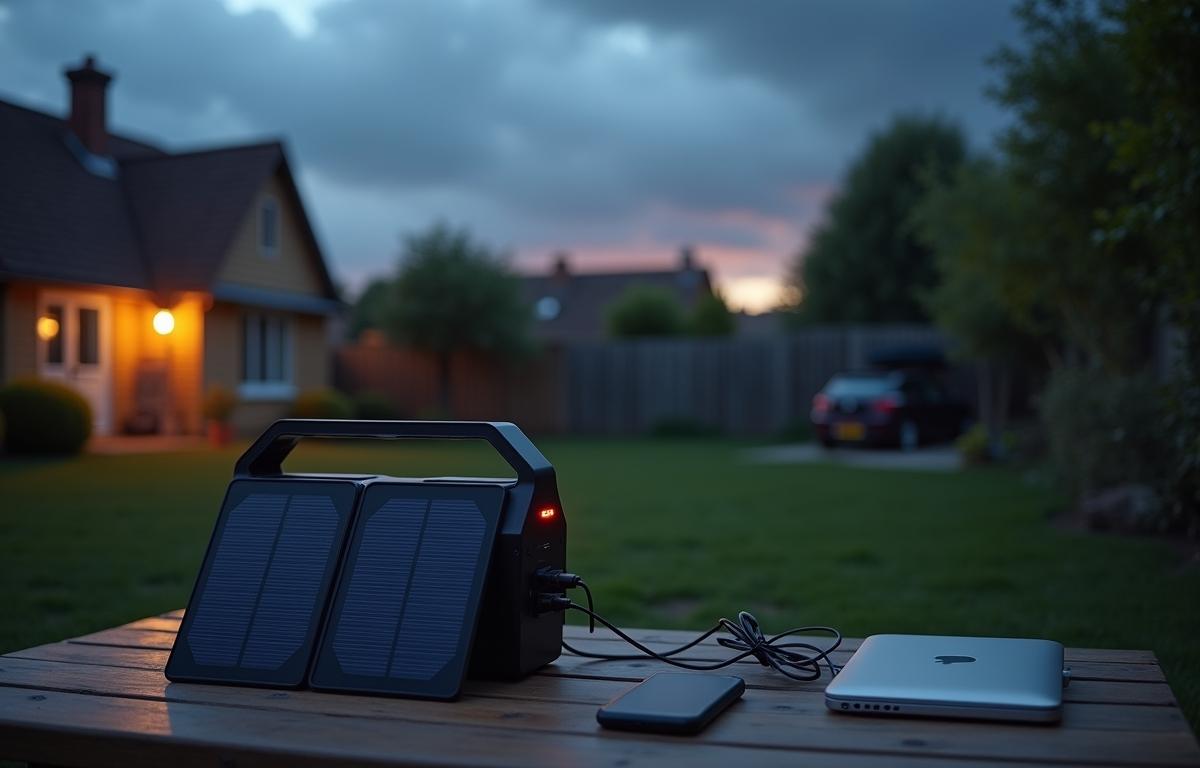
Top Portable Power Solutions for Unexpected Power Failures
During unexpected power failures, portable power solutions can provide essential backup. Whether it’s a storm knocking down power lines or an unexpected outage, having a backup source of energy helps you stay connected and maintain peace of mind. We rely on electricity for almost everything, from keeping our phones charged to powering medical equipment. When you’re caught unprepared, stress levels can skyrocket in a hurry. That’s why exploring the right options for a portable energy supply before an emergency strikes should be high on your priority list.
Why a dependable energy source is essential
A dependable energy source keeps you feeling safe, regardless of how long the grid is down. When home appliances lose power, vital tasks like preserving food and charging your phone become a real challenge. If you have a solid plan in place, you won’t need to scramble for solutions when the house goes dark. Instead, you can rely on devices that are primed to deliver consistent electricity.
Beyond household use, people who love camping, off-grid adventures, or boating also need to think about reliability. A robust setup ensures you can power critical tools without worrying if your battery will fail halfway through your camping trip. This same principle applies if you work remotely or in mobile environments where electricity might be limited.
Choosing the right portable power solutions for your needs
Not every device meets every requirement. Some folks only need to charge phones and small gadgets, while others need to run power-hungry appliances like refrigerators. Identifying your unique needs should be step one. Understanding how many watts your essential items draw makes it easier to match them to a compatible power provider.
Battery capacity and wattage
Consider how much energy reserve you need. Battery capacity is measured in watt-hours (Wh), letting you know how long a device can deliver electricity under a certain load. If you have multiple electronics, or you need electricity for extended periods, a larger capacity is essential. On the flip side, smaller battery packs are fine for casually topping up phones or tablets.
Ease of use and reliability
Look for user-friendly features like a clear display panel that shows battery levels and charging status. Some models also include distinct outlets and ports to accommodate a wide range of devices. Reliable units endure regular use, offer stable output, and have safety mechanisms like surge protection to prevent damage to your electronics.
Exploring the benefits of a solar powered generator
Many people are drawn to solar powered generator setups because of their eco-friendly design. This choice harnesses the sun to fill up your battery, often through foldable or rigid solar panels you can position outdoors. Once the battery is fully charged, you receive power that looks and feels just like the electricity from a regular outlet.
Having a solar generator means independence from fuel-based sources. If sunlight is available, you can count on a steady energy flow. This is particularly useful when traveling off-grid, camping in remote areas, or facing prolonged outages. You won’t need to worry about running out of gas or propane, so you can keep your electronic essentials alive indefinitely provided the sky cooperates.
Weather and charging times
Solar charging speed depends on the panels’ wattage and the intensity of available sunlight. You may need to position your panel angles toward the sun throughout the day for maximum efficiency. In cloudy conditions, the system still charges but at a slower rate. For that reason, people often pair solar chargers with a backup method like AC charging from a wall outlet so they’re covered on overcast days.
Considering a portable battery pack for daily convenience
For many, a portable battery pack is a straightforward option that’s easy to store in a drawer or bag. It’s perfect for quick charges on the road or short power bumps that only last a few hours. You’ll often see them used for smartphones, tablets, and lightweight gadgets. The best part is they’re generally small and light, so carrying one around isn’t a burden.
Keep an eye on features like fast-charging support and the number of available output ports. High-quality models also include safety features to prevent overcharging or battery damage. If you need a simple way to stretch your phone’s battery life during an outage, a good battery pack might be more than enough.
Getting the most out of an emergency backup power station
For bigger applications, a portable backup power station delivers a more robust solution than a tiny battery pack. These stations often include multiple AC outlets, USB ports, and DC car ports that cater to many devices simultaneously. Their substantial capacity means you can power small appliances, lights, and essential gadgets for hours, depending on load.
Protecting sensitive electronics
Some critical medical devices or high-end tech gear can be sensitive to voltage fluctuations. Look for power stations equipped with pure sine wave inverters. These inverters replicate the smooth current typically available from conventional outlets. As a result, your electronics stay protected from harmful fluctuations.
Maintaining your portable charging station for long-term performance
Maintenance often gets overlooked until you realize your device isn’t holding a charge as well as it used to. To extend its lifespan, store your station in a cool, dry area with moderate temperatures. Extreme cold or heat can degrade battery efficiency over time. It’s also wise to use the station occasionally, so the battery remains active.
Charging and discharging cycles
Recharge your power station fully before storing it, and avoid letting battery levels drop to zero for too long. Many manufacturers recommend cycling the battery every three months to preserve its performance. By recharging the system even when you’re not using it, you ensure it’s ready for serious action when you need it.
Considering gas or propane-based emergency backup power
When you need power for extensive periods or for larger appliances, a traditional generator might be the route to take. These generators typically run on propane, gasoline, or diesel. Although they’re heavier and noisier than battery-based options, they provide higher wattage for a longer duration, as long as you have fuel.
Keep in mind that gas-powered units need proper ventilation, especially if they generate fumes. Following safety guidelines is critical. The upside is that, once fueled, they can keep your refrigerator, air conditioner, or power tools running far longer than most battery-driven alternatives.
Thinking about off-grid living scenarios
Some individuals choose to ditch the hustle of city life and embrace off-grid living. For them, reliable backup solutions aren’t just conveniences; they’re daily necessities. Solar setups can be a foundation, bolstered by portable battery devices. Gas-powered generators can be supplementary support for times when the sun won’t peek through the clouds.
Mixing and matching solutions
A hybrid approach often proves most resilient. Combine solar panels with a sizeable battery station for day-to-day use. Then, keep a fuel-based generator in reserve for emergencies or times of heavy power demand. This layered strategy guarantees you’ll have multiple ways to stay powered up no matter what nature throws your way.
Budget considerations for portable systems
Your budget might limit how large or advanced a system you can purchase but don’t assume pricier is always better. Take a look at your typical usage patterns and figure out the capacity required. A modest, well-chosen setup beats an overly expensive one you barely use. Evaluate what you truly need, and aim to invest in a reputable brand that offers dependable performance over time.
Some individuals prefer to upgrade gradually. They start with a medium-capacity station, then expand with additional battery packs or solar panels as finances allow. This step-by-step approach helps spread costs out while still offering additional coverage.
Final thoughts on staying powered in an outage
Uncertain power grids create plenty of stress, but the variety of portable energy options out there can ease your worries. Large or small, there’s a device tailored to fit just about every lifestyle and budget. Whether you’re drawn to green energy solutions like solar or the reliable kick of a gasoline generator, researching the right blend of features is time well spent.
Portable power can be the difference between fumbling in the dark and breezing through a blackout with confidence. As you weigh your options, keep a keen eye on what suits your daily life, emergency plans, and financial considerations. With thoughtful planning, you’ll be prepared for everything from a simple power flicker to a prolonged outage knowing your devices can stay on and your routine can remain as smooth as possible.


